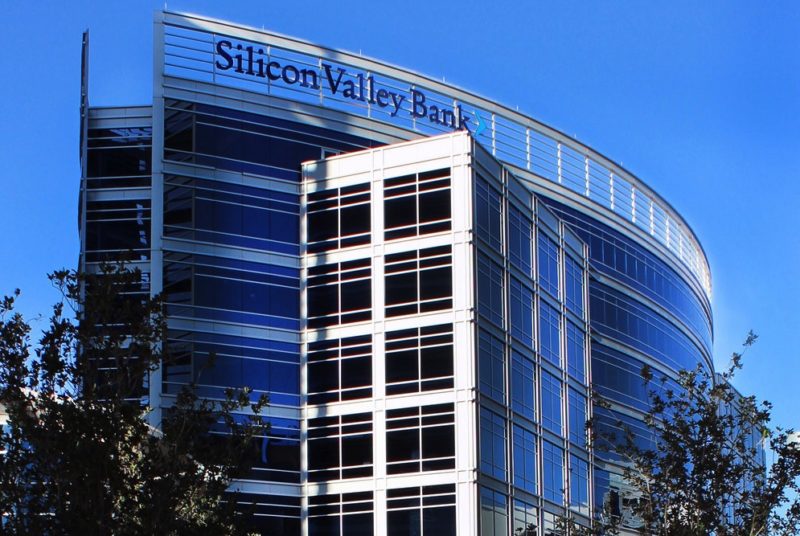Silicon Valley Bank: The Ultimate Advocate of NewSpace Investment

Silicon Valley Bank. Photo: Fintechtime
When it comes to NewSpace investment, Silicon Valley Bank (SVB) serves as the industry’s ultimate market insider and growth champion.
Consider this: Nearly 7 out of every 10 U.S. venture-backed technology firms that completed an Initial Public Offering (IPO) in 2018 and half of all U.S. venture-capital backed firms are SVB clients. For 35 years, this outside-the-box commercial bank has helped the most innovative startups connect and navigate the world of venture capital investment. That’s especially true of the space sector, where SVB counts the largest smallsat companies and the leader in the smallsat launch category among its clients.
Ann Kim, managing director of hardware and frontier Tech for SVB, recently sat down with Via Satelliteto share her thoughts on today’s NewSpace industry, the current climate for Venture Capital (VC)-backed space investment and how companies can best position themselves to get funding support.
What differentiates SVB from traditional banks that make decisions based on a company’s known history and cash flow? “We really understand new business models and the cash-burning lifecycle of a startup,” she explained.
According to Kim, startups are cash burning: they seek to raise money, burn through it, and raise money again. They target only 12 to 24 months of liquidity before they have to raise money again.
Kim explains that when looking to lend to a firm, SVB looks at three factors: the market opportunity (growth company in a high-growth market), the experience of the management team and their investor syndicate —that there is a strong investor support system behind the company.
Kim was a fan of SVB long before she joined the bank in 2008, which was thriving even then. That year marked the start of the Great Recession when most traditional banks were reeling following the U.S. housing collapse. She says a lot has changed in the space sector in the days when VC firms shied away from space projects because of the unknown time horizon for exit opportunities.
“With the advent of affordable launch and the cubesat revolution, investors realized money could be made in this NewSpace industry,” said Kim, noting that SVB’s aerospace practice started with clients in the smallsat and small launch space.
“We have a lot of companies now focused on the infrastructure software that needs to be built — including storage and security.”
Another area of interest is Synthetic Aperture Radar (SAR) microsatellites: “There are so many applications for SAR microsats compared to those that rely on cameras or spectroscopes, ” said Kim. “No longer will data be limited by weather conditions including sunlight or clouds.”
The most dollars are going to space projects that enable global internet connectivity and broadcasting firms wanting to invest in space to expand their coverage footprint, Kim said.
Kim notes that because SVB has a global presence, “we have good insight into the industry and what’s going on. We have access to the best investors who understand the different technologies going to market.”
Kim, a Berkeley graduate of molecular and cellular biology has experience working with venture capital-backed startups, and enjoys adding value to entrepreneurs, investors, and industry influencers.
“I’m here really to connect people. I talk about the 3Cs – capital, customers and culture. Capital is the fundraising and financing aspect, customers are the right players to help develop the product or platform, and culture can be defined in different ways — hiring people with the right background, or finding the right partners to scale quickly.”
She said SVB welcomes all space entrepreneurs to become a part of its community, noting that the bank is available to offer advice and support. “We absolutely welcome and accept any entrepreneur into our ecosystem. We currently have offices in the U.S., Canada, U.K., Germany, Israel, and China.”
“It’s a really exciting time to be in the space industry,” she concluded. “The investment community is actively engaged with satellite companies, and there is a lot of capital to support innovation in this industry.”
Space Sector Attracted $3B in Equity Investment in 2018
Without question, space investment is now big business: According to Space Angels’ Space Investment Quarterly Q4 2018 market intelligence report, nearly $3 billion of equity capital was invested in space companies globally in 2018, bringing the cumulative total to $18 billion invested into 412 space companies since 2009.The U.S. continues to lead global investment in space, accounting for 57 percent ($9.6 billion) since 2009.